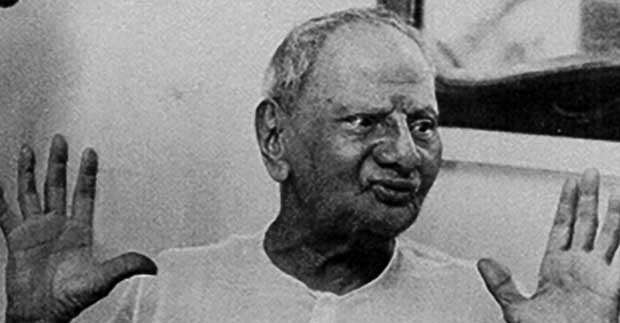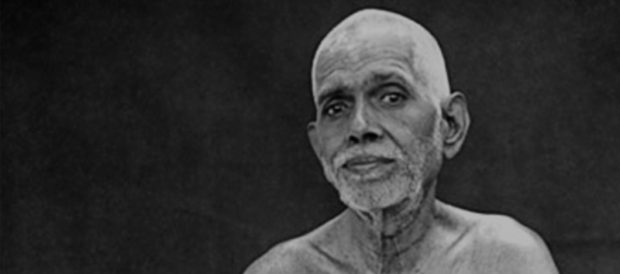Nisargadat lived in a poor, noisy and busy area of Bombay. Each day I joined the crowd of Indians and Europeans sitting on the floor of an upstairs room in his modest apartment. One of his followers translated our questions into Marathi and his answers into English.

Nisargadat said his Guru told him to meditate on the sense of “I”. He did, and he became enlightened. He explained that enlightenment is when the Sense of Self, our individual identity, dies or uninstalls. (This phenomena is well documented in India – see footnote.)
He said that we are a “food-body”, born to eat, grow, procreate and die – we’re just a reproductive link in the chain of living matter on this planet. There is nothing unique about a “food-body”, but the Sense of Self gives it the illusion of being an individual. The moment we die the Sense of Self ends and we’ll become enlightened – unfortunately to late!
I visited Nisargadat for six weeks. I now had just two weeks left of my years travelling and planned to spend them quietly chilling out before flying back to London.
When I left Nisargadat the translator was waiting outside in the street to have a quiet word with me. He suggested that I might like to visit Doctor Sahib, “the other enlightened man in Bombay”. Doctor Sahib lived in Khar, a quiet residential suburb.
Footnote

Ramana Maharshi, one of the most widely respected sages in India, gave a first-hand account of how he became enlightened: He was an ordinary high school pupil and neither he or his family were particularly religious or spiritual. One day, while alone in the house, he suddenly felt that he was going to die. He lay down on the floor and imagined his funeral as the Sense of Self spontaneously uninstalled.
There are many myths about enlightenment that U.G. Krishnamurti sought to demystify (See U.G. page). He pointed out that Ramana’s loss of the Sense of Self was not a spiritual awakening but a physiological event. The same event had happened to him. Without a Sense of Self he considered himself to be “a reject on the production line of humanity”.
Spiritual enquiry
Stumbling into it
Some extras
Disclaimer
